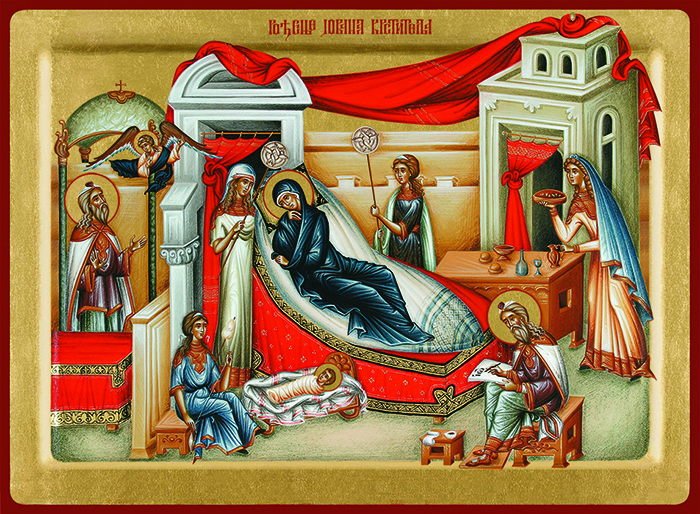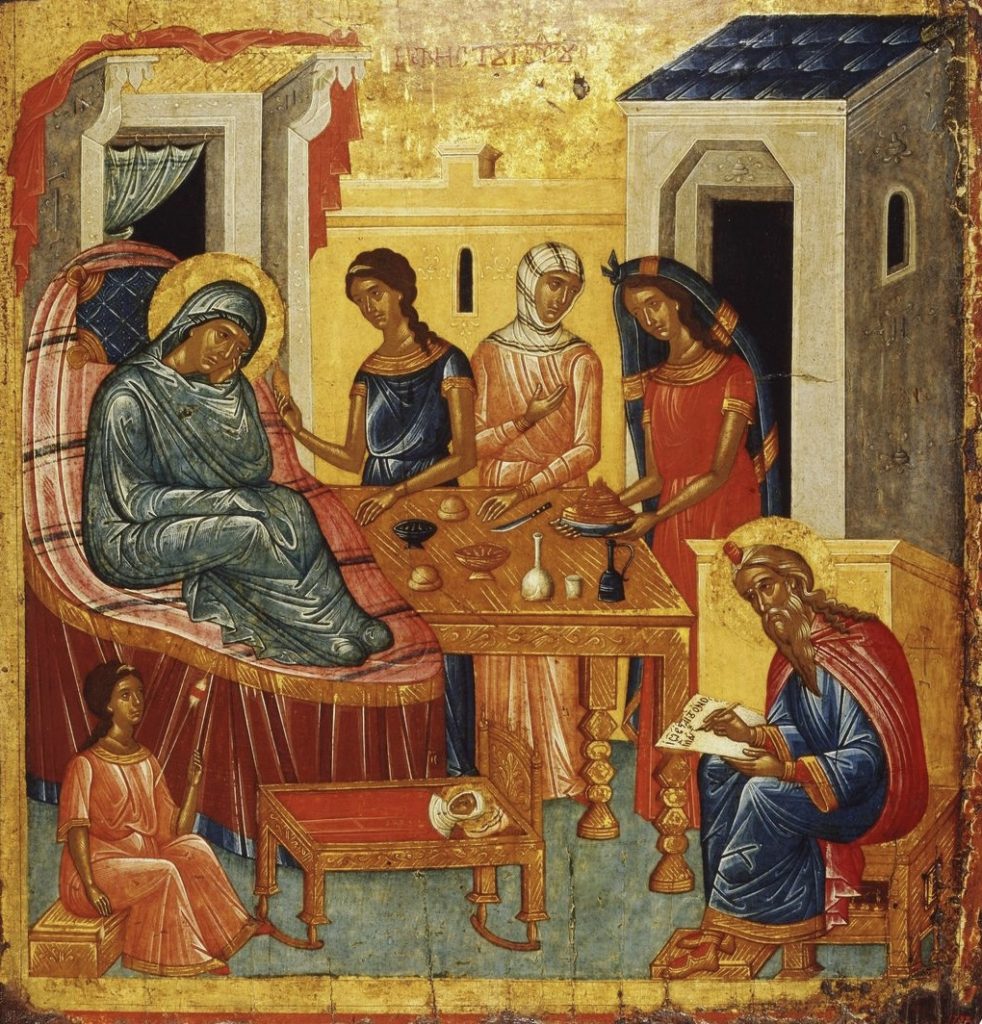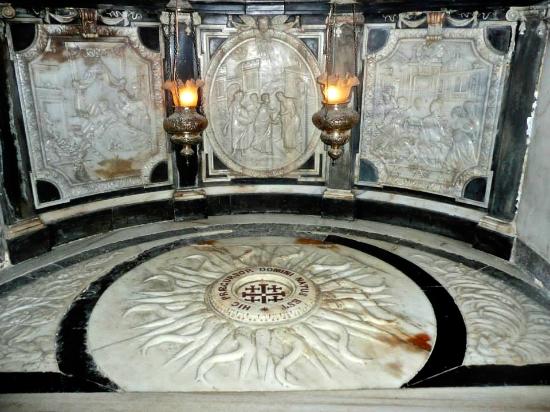 It was a joy to celebrate the feast of the Holy, Prophet, Forerunner and Baptist, John in Nazareth House today, and even though there were only a dozen of us for Liturgy, in no way did it detract from the beauty of solemnity of this feast of the birth of the first among the saints.
It was a joy to celebrate the feast of the Holy, Prophet, Forerunner and Baptist, John in Nazareth House today, and even though there were only a dozen of us for Liturgy, in no way did it detract from the beauty of solemnity of this feast of the birth of the first among the saints.
Many thanks to George for reading at vespers of the eve of the feast and to Margarita and Alexander for chanting on the kliros for this morning’s Liturgy, and “Many Years” to our starosta, Norman John, whom we congratulated on his name day.
Recalling the Saviour’s own words, “among those born of women there has been none greater than John the Baptist”, in the spiritual hierarchy of God-pleasers, St John the Forerunner is always called upon first after the Mother of God and before all other saints, even though he was a figure from the Old Covenant of the House of Israel, though antithetical to its spiritually, morally and politically corrupt establishment; the last of the prophets and the messenger proclaiming the coming dawn of Christ, the Light of the world; a wild, difficult and disturbing character, prophesying, accusing and challenging the world and society around him; a link between the Old Covenant and the New Covenant, the Old Israel and the New Israel.
His arena was neither Temple nor synagogue, not even the physical environs of Jewish society, but the wilds and wastes of the Judaean desert, to which people flocked to hear his spiritual message as he “made straight the way of the Lord.”
Among the rocks and wadis, he had neither attachment or constraint, hardly belonging to the world, and labouring only for the coming of the Messiah: his authority coming only from God, and not from the establishment, for which he was a thorn in the side, and a challenge whom it could not control.
Such was the will of God, that the Forerunner was an essential part in the unfolding economy of salvation, proclaiming the Lamb of God who takes away the sins of the world, baptising Him in the waters of the Jordan, and calling pious Jews to the repentance that would make them ready-soil for the seed of the Gospel.

In the third chapter of the Gospel of St John, we read the Forerunner’s words:
“He that hath the bride is the bridegroom, but the friend of the bridegroom, which standeth and heareth him, rejoiceth greatly because of the bridegroom’s voice; this my joy therefore is fulfilled.”
Such was his centrality in the unfolding of salvation, his intimate link to the Saviour, and his planning and arranging for the coming union of Christ and His yet to revealed bride, the Church, that she calls him the ‘Friend of the Bridegroom’ – who, in Judaism, would have been called the shoshbin: the trusted intermediary, wedding arranger and attester to the consummation of a marriage.
Making straight the way of the Lord, preaching repentance to Israel and performing the symbolic baptism of repentance, John prepared the future bride for her marriage to the Saviour, the Bridegroom of the Church.
His work done, he was glad to diminish in the world once his kinsman in the flesh, the God-Man, Jesus Christ had appeared, suffering martyrdom once his preparatory work was done.
Even though his very life was a miracle and he was set apart, in St John, there was no ego, no self-interest, no personal agenda – only selfless labour for Christ the Bridegroom, according to God’s will and purpose, not his own.
Let us emulate his selflessness and humility, seeking neither power, position, reputation, recognition or credit, but rather labour for Christ, fearlessly and with boldness, uncompromisingly witnessing to Christ the Light of the World, and seeking not to sycophantically please the modern Herods among politicians, political-paymasters, ideologues and pedagogues advocating spiritual relativism, woke-ism and moral degradation.
Inspired by St John, our challenge is not to allow politeness, niceness and political expediency, to stifle the voice of truth and righteousness, or to tempt us to embrace the growing spiritual and moral relativism of ‘tolerant’ society, but rather to maintain and defend the absolute Truths which have been revealed to us as Christians shaped by the Gospel and the Faith of the Church.
As some Church leaders and archpastors make peace and concord with the spirit of Herod, the Church and the world needs us all to be emulators of the Holy Prophet, Forerunner and Baptist, John, and it is the uncomfortable and challenging voices of those crying in the wilderness that will show the way to Christ’s Kingdom and the great wedding feast of the Bridegroom.
